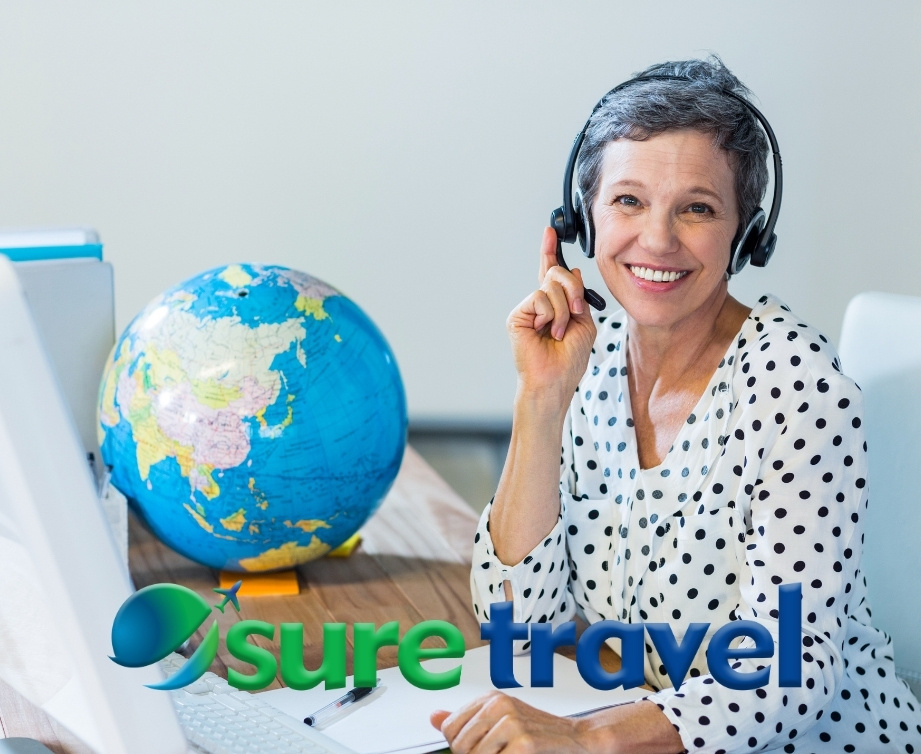With the excitement of planning a trip, it's easy to overlook potential warning signs. Yet, when it comes to travel scams, there are always big, red, flashing warning signs! From too-good-to-be-true deals to unverified websites, we’ll equip you with the basic knowledge to protect yourself and your pocket.
Since there has been travel for sale, there have been fraudsters trying to trick travellers out of their money. With the rise of online bookings, a whole new digital world of fraud has opened up for scammers wanting to deceive unsuspecting travellers.

Scammers often prey on individuals who are eager to find the best deals and who may not have the experience to recognise fraudulent activity. As a result, even the most seasoned travellers can fall victim to these scams. By understanding the common warning signs, you can protect yourself from potential financial loss and travel disruptions.
In the following sections, we'll explore the seven most common warning signs of travel scams and provide you with actionable tips to safeguard your travel plans and finances.
The adage “if it’s too good to be true, it probably is” should always be applied to travel deals. Whether it's an unbelievably low-priced flight or an all-inclusive vacation package at a fraction of the cost, these offers often serve as bait to lure unsuspecting travellers into a trap. Scammers use these enticing deals to capture the attention of potential victims, only to reveal hidden costs or, worse, non-existent accommodations, flights, tours, etc. later in the booking process.

To avoid falling for these scams, it's essential to approach unrealistically low prices with scepticism and to conduct thorough research before making any commitments.
It's important to remember that reputable travel providers and airlines rarely offer heavily discounted rates that deviate significantly from the standard market prices. So, if an offer is far below all other competitors’, approach with caution and do your due diligence before making any moves.
Legitimate travel agencies and businesses always provide accessible and have verifiable contact information for their customers. This includes a physical address, phone number, and email address through which customers can reach out for inquiries and support.
In contrast, travel scams often operate under the guise of anonymity, making it challenging for customers to verify the legitimacy of the services offered. Scammers may use untraceable email addresses, virtual phone numbers, or obscure their physical location to evade detection and accountability.

Also remember that a website and/or social media pages are not proof that a business is legitimate. Travel scammers often start websites that may even look professional; beware, it’s all part of the con!
When evaluating a potential travel provider, always ensure that their contact information is readily available and that you can verify its authenticity. If a company's contact details appear vague or unverifiable, it's best to err on the side of caution and seek alternative options to avoid potential scams.
Most importantly, check the travel providers’ accreditation with industry bodies, as a credible travel provider will be a member of or associated with a reputable body that regulates their industry. For example, in South Africa, check whether a travel agency is a member of the Association of South African Travel Agents (ASATA), as all Sure Travel agencies are.
Scammers frequently employ pressure tactics and urgency to coerce travellers into making rushed decisions. Whether it's a limited-time offer or a last-minute deal that requires immediate action, these tactics are designed to bypass rational thinking and prompt impulsive bookings.
By creating a sense of urgency, scammers aim to capitalise on the fear of missing out and the desire to secure a seemingly exclusive opportunity. As a result, travellers may overlook critical details and hastily commit to bookings without conducting proper due diligence.

To protect yourself from falling victim to these tactics, it's essential to approach high-pressure offers with scepticism and to take the time to thoroughly evaluate the terms and conditions, ascertain the legitimacy of the travel provider and check other customer reviews.
Remember: genuine travel providers understand the importance of informed decision-making and do not rely on manipulative tactics to secure bookings!
The quality and professionalism of a travel provider's website and communication channels can offer valuable insights into their legitimacy. Scammers often operate substandard websites with poor design, lack of detailed information, and an absence of secure payment options.
Before providing any sensitive information or credit card details, ensure that the website is secure and legitimate. Look for trust indicators such as SSL certification, verified payment gateways, and customer reviews. When in doubt, it's best to use established and reputable booking platforms or directly contact the accommodation provider or airline.

Additionally, communication from illegitimate travel sources may contain grammatical errors, inconsistencies, or an unprofessional tone. These indicators point to potential scams and should prompt travellers to exercise caution when engaging with such providers.
When assessing the credibility of a travel website or communication, pay attention to the overall presentation, user experience, and the clarity of information provided. Legitimate travel businesses invest in maintaining a professional online presence and prioritize clear, coherent communication with their customers.
Another red flag signalling a potential travel scam is the insistence on upfront payment or the solicitation of excessive personal information before confirming bookings. Scammers may pressure travellers into making immediate payments or divulging sensitive details, such as credit card information or personal identification, under the guise of securing reservations.

It's essential to exercise caution when encountering requests for upfront payments without transparent booking procedures or the disclosure of personal information beyond what is necessary for legitimate reservations. Reputable travel providers adhere to standard industry practices and prioritize the protection of their customers' sensitive data.
Always verify the legitimacy of a travel company before sharing any personal or financial information, and be wary of any requests for payments that deviate from established norms within the travel industry.
In today's interconnected world, travellers often share their experiences and insights through online reviews and forums. Before engaging with a travel provider, take the time to research and consider the feedback from other travellers who have previously interacted with the company. HelloPeter, Google Reviews, TripAdvisor and Facebook Reviews are good places to start.

Negative reviews, warnings about potential scams, or accounts of fraudulent activities should serve as clear indicators to exercise caution and reconsider engaging with the provider. Additionally, if fellow travellers have raised concerns about the legitimacy or trustworthiness of a particular travel service, it's prudent to heed their advice and explore alternative options.
By leveraging the collective experiences of other travellers, you can gain valuable perspectives and make informed decisions when selecting a reputable travel provider.
Legitimate travel providers prioritise transparency and clarity when outlining their terms and conditions, including cancellation policies, refund processes, and any additional fees or charges associated with bookings. In contrast, scammers often obscure or omit crucial details, leaving travellers vulnerable to unexpected expenses and complications.
Before finalising any travel arrangements, carefully review the terms and conditions provided by the travel provider. Ensure that all pertinent information is clearly presented and that you have a comprehensive understanding of the obligations and rights associated with the booking.

If a travel provider exhibits a lack of transparency or fails to provide adequate information about their terms and conditions, it's advisable to seek alternative options to avoid potential scams and safeguard your travel experience.
Likewise, a credible travel provider will always advise the client to purchase travel insurance. For example, Sure Travel partners with Travel Insurance Consultants and offers insurance as a default with all bookings. If a travel provider does not even offer travel insurance, there may be something fishy going on…
Armed with the knowledge of these seven warning signs of travel scams, you can take proactive steps to protect yourself and your travel plans. These include:
1. Prioritising thorough research and exercising scepticism towards enticing offers.
2. Booking via reputable and accredited travel agencies and/or only using trusted booking platforms.
3. Seeking recommendations from trusted sources.
4. Remaining vigilant for any warning signs that may signal fraudulent activities (i.e. poor communication, unprofessional website, pressure tactics).
5. Only using secure and reputable payment options. Avoid wiring money, transferring funds through unfamiliar platforms, or sharing financial details via unsecured channels.

Remember that protecting yourself from travel scams is an ongoing endeavour that requires staying informed about emerging threats and evolving scam tactics. By remaining proactive and informed, you can travel with assurance and minimise the risk of encountering fraudulent activities during your journeys.
Sure Travel is a group of travel agencies across South Africa and Southern Africa. The group has been in business for more than three decades and has a solid, verifiable track record for delivering excellent service and the best travel deals. More on the Sure Travel group here. In addition, all Sure Travel agencies are members of ASATA, so you can rest assured that you will never be scammed when booking via a Sure Travel agency! Find your nearest Sure Travel agency here.
